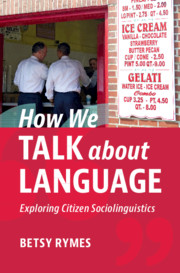The Shared (and Not so Shared!) Language of Covid-19: Our ways with words may be as critical as a vaccine
Months ago, the world became collectively embroiled in the Covid-19 pandemic. Simultaneously, we began to learn and create an entirely new vocabulary together. Signs of how we’ve coped, come together, struggled, and innovated can be seen in the language we’ve been using to talk about the virus. But our new, growing, and sometimes fabulously creative COVID-19 vocabulary can also be divisive. To make it through this pandemic, our ways with words may be as critical as a vaccine.
At first, new or unfamiliar words were largely offered up by the medical profession: Words like Pandemic, Covid-19, Coronavirus, and the Novel Coronavirus rapidly became a part of our vocabulary. The experts also provided words for responses we should take: quarantine, social-distancing, shelter-in-place. Since most of us were frequently talking about the pandemic, and trying to formulate the right response to it, we used these words a lot.
Then we began to get creative, riffing off these standard words, injecting our own local flair, calling attention to our particular conditions, and spicing up the quarantine vocabulary with more emotion and personality. Quarantine spawned quarantini and quaranteam. We began to do a lot of quaran-baking while home, gaining the Covid-15, unwanted pounds associated with all those extra carbs. Coronavirus morphed into simply, the ‘rona, and our time home from work was even referred to by some as a corona-cation. These playful pandemic spin-off words now harken back to a rosier period in the fight against Covid-19: the initial solidarity-based, team-effort stance to the pandemic: “We’re all in this together!”
Now, a few months later, at least in the United States, pandemic fatigue is setting in. Our Covid-19 vocabulary has grown in a new direction, as people coin new words that give voice to their opinions and display where they stand. Last week, I had my graduate students compile a list of the words they’d been hearing and using during the pandemic, and I noticed a dark turn. While the fun ones where still there, new words appeared that illuminate a more divided public.
Consider, for example how these pandemic words have morphed over the last few months:
Mask (our new essential accessory) has spawned maskne (“rhymes with acne”) and mask tan, suggesting the slight annoyance setting in. Maskhole takes us in a darker direction—describing (and insulting) those who refuse to wear masks.
Covid-19—has morphed to covidiot, or, in Spanish, as one student noted, covidiota. Like maskhole, covidiot provides a covid-specific word for those who refuse to follow public health guidelines, who attend huge parties, or engage in other forms of risky togetherness.
Pandemic—the term originally taken up from medical professionals has now been replaced with plandemic and scamdemic by conspiracy theorists who claim COVID-19 is not serious. Acknowledging how divisive these new words might be, the student who shared these terms was quick to add that these words are “not something I would say!”
Over the last nine months, we’ve gone from the whimsical sharing of quarantinis and quaran-baking to the more ominous specter of maskholes and the scamdemic. As our ways of talking about Covid-19 conditions unfurl, each of these new words and expressions builds not only creative new forms of self-expression, but real responses to the pandemic, talking our struggles against the pandemic into being and, in some cases, denying its import. New words can shape our response to the pandemic as a collective effort—or turn the pandemic into a fight against each other. Nine months in, our collective response has taken a troubling turn. These are no longer just fun words—drawing us together, helping us cope. They have also begun to express our differences. New words like maskhole, covidiot, plandemic, and scamdemic point to divisions in the United States that may be helping the pandemic persist.
Fortunately, the talk doesn’t stop here: Talking about these words and creating still new ones has the power to talk new ways of responding into being. The pandemic is still being grappled with by doctors, scientists, and public health experts, and our future will largely be shaped by vaccine research. But even the most rigorously tested vaccine won’t be effective unless we believe it to be so. The success (or failure) of any new solution is in our hands, or rather, in our words.






